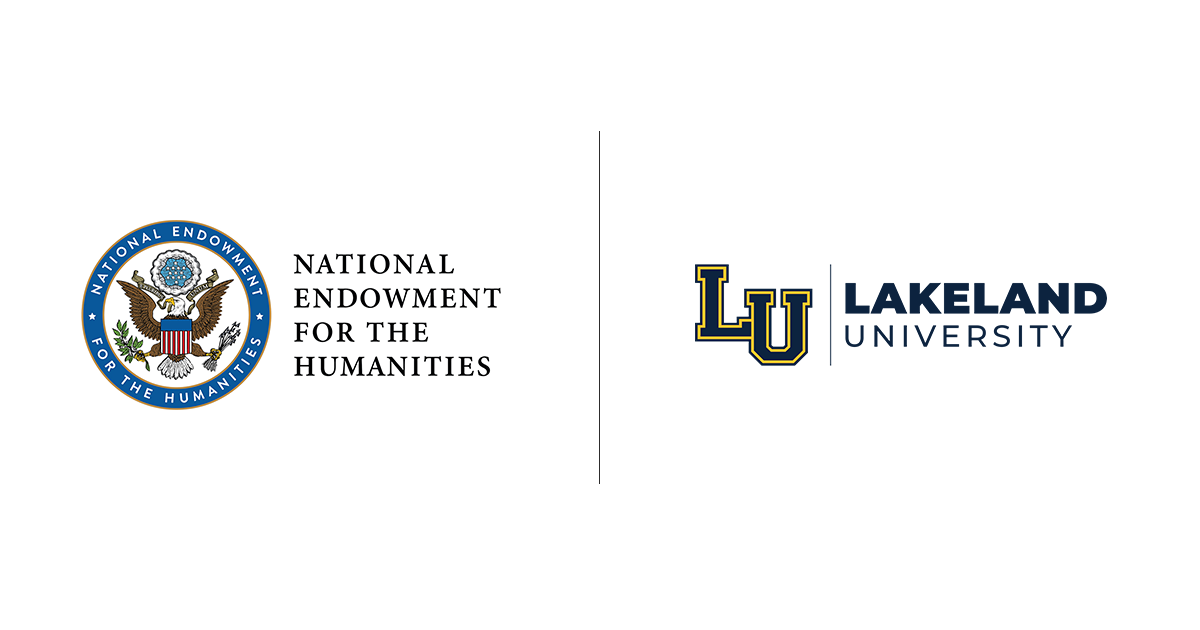LU humanities students to benefit from national grant
Lakeland University has received a $59,425 grant from the National Endowment for the Humanities to provide students studying programs in LU’s School of Humanities & Fine Arts the career-building experiences they need to pursue humanities-related jobs.
The two-year grant, which NEH announced today, will provide Lakeland’s innovative Cooperative Education program additional resources to expand its service to LU students and employer partners.
Lakeland’s Experiential Learning for the Humanities will target Lakeland students enrolled as majors or minors in our humanities and fine arts areas.
It will also engage Lakeland’s faculty in these areas, LU’s Humanities and Fine Arts Board of Advocates and existing partnerships with area organizations to help build those relationships and create new connections with area non-profits, small businesses and corporations.
Lakeland will use the grant dollars to focus on three areas:
Lakeland also plans to host networking events to connect Lakeland humanities faculty and students with a broader group of area employers to expand the employment options available for students.
The grant comes at a time when an Increasing number of prospective students and families are asking colleges and universities to better define post-graduation pathways. Lakeland has responded to this concern while also addressing the rising costs of a college education through its Cooperative Education model, while also remaining committed to the enduring value of a humanities education.
From the Lakeland Co-Op program’s start in the fall of 2018, Lakeland students in all programs have worked in more than 3,500 placements earning nearly 12,500 academic credits and working more than 668,000 hours. That’s an average of more than 35,000 hours per semester, and LU students have earned $10 million in wages.
Nearly 80% of incoming Lakeland students intend to pursue Cooperative Education as part of their degree program, and Lakeland’s humanities programs have integrated Co-Op within all program curriculums to reinforce students’ classroom learning, build career opportunities and expand awareness of the range of careers available.
One barrier for non-profits and small businesses has been funding as they often cannot afford to pay for student interns. Many Lakeland students cannot afford to commit 10-15 hours a week to an unpaid or underpaid work experience.
“As a result, many of our humanities students are not able to take advantage of these valuable opportunities to apply and grow their humanities-based skills and participate in career-building experiences,” said Karl Kuhn, Lakeland’s Chair of Humanities and Fine Arts and Scholar in Residence, who will direct this program.
“This grant will provide needed funds to allow us pay these students while providing employer partners with emerging professionals that will positively impact their organizations.”
Lakeland humanities students have worked in a variety of professional settings to put their classroom instruction into practice, including the Sheboygan County Museum, the Sheboygan County Historical Research Center, the John Michael Kohler Arts Center, the Boys and Girls Club of Sheboygan County, the Weil Center for the Performing Arts, the Sheboygan Symphony Orchestra, the United Way of Sheboygan County, Master Gallery Foods, domestic violence shelters, senior living facilities, literary magazines, the Glacial Lakes Conservancy, Waters Edge Press and a wide range of area non-profits.
Lakeland students have served a wide range of roles related to their intended career paths including cataloging archives, gathering research, digital marketing, graphic design, writing and editing, event planning, volunteer coordination and many others.
“These experiential learning placements have honed the skills and knowledge gained by our humanities students in the classroom by providing an array of professional contexts for putting these skills into practice,” Kuhn said.
“These placements also provide our students the valuable experience of working with and learning from established professionals in their fields who embrace their role not only as supervisors but also mentors. The curricular work and networking connections we will achieve through this project will benefit our humanities students not only for the duration of the project but for years to come.”
ABOUT THE NATIONAL ENDOWMENT FOR THE HUMANITIES
Created in 1965 as an independent federal agency, the National Endowment for the Humanities supports research and learning in history, literature, philosophy, and other areas of the humanities by funding selected, peer-reviewed proposals from around the nation. Additional information about the National Endowment for the Humanities and its grant programs is available at www.neh.gov
